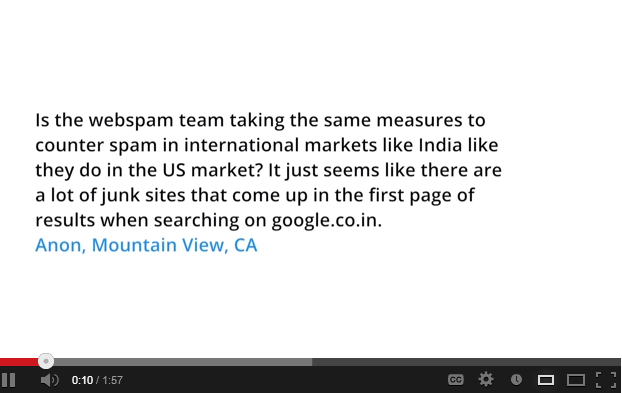Google’s Webspam team is hard at work in the United States, punishing sites with bad digital content and rewarding domains that provide users with valuable experiences. However, its efforts reach further than marketers might assume. In the latest Webmaster Help Channel video, Search Engineer Matt Cutts answered a question about fighting spam internationally as well as domestically.
On the heels of a recent video in which Cutts explains why it might be a mistake to build a web presence on a foreign domain, it seems that Google is paying more attention to international internet activity. In the video, Cutts assures webmasters that the search engine is well aware of spammy sites that show up in SERPs, and the company has internationalized its algorithms to prevent these sights from dominating results.
“Both (the engineers who work on algorithms and the manual webspam team) work on spam around the world … We want the algorithms whether they be link spam or keyword stuffing or whatever to work in every language as much as we can,” he states.

In fact, Google can detect and fight low-quality web content in 40 different languages. And while English spam in the U.S. on a dot com domain gets a lot of attention, this doesn’t mean sites in foreign languages aren’t scrutinized and scoured in the same way to ensure internet users around the world have optimal search experiences.
That being said, Cutts asks that people bring international spam sites to Google’s attention via messages or Tweets. It’s still difficult for every webspam team member to detect sites using black hat SEO strategies, but that might change in the future.
“We take that feedback and we try to use that to improve future iterations of algorithms as well,” Cutts reports.
This demonstrates Google’s commitment to ensuring the web remains a valuable resource, even as global ‘net surfing proliferates. However, it might also serve as a warning for any SEOs who have considered developing international domains to carry out black hat practices off the search engine’s radar.




